
SmartSoda® Expands Distribution Reach Through Partnership with Consolidated Services Group, LLC
CLEVELAND--(BUSINESS WIRE)--Aug 11, 2023--
2023-08-11 23:17

Amazon warns employees who don't go to the office enough
Amazon has warned some of its US-based office workers that it is keeping a close eye on their in-person attendance at work, sending emails to those it believes are not complying with its return-to-office policies.
2023-08-11 22:59

ZincFive Wins Mission Critical 2023 Top Tier Product Award in the UPS Category
PORTLAND, Ore.--(BUSINESS WIRE)--Aug 11, 2023--
2023-08-11 22:29

13 Photos Show the Destructive Force of Wildfires in Maui
Rescue and clean-up crews are pouring into the historic town of Lahaina, once the capital of the Kingdom
2023-08-11 21:52

Forge Your Legacy: CORSAIR Launches New Keyboard and Headset for Superior Customization and Control
MILPITAS, Calif.--(BUSINESS WIRE)--Aug 11, 2023--
2023-08-11 21:17

FIS Named Top 200 Fintech Company for Digital Banking Solutions in Inaugural CNBC Ranking
JACKSONVILLE, Fla.--(BUSINESS WIRE)--Aug 11, 2023--
2023-08-11 20:22

Ant Group Expands Cross-Border Digital Payment Services in Asian Games Support Initiative
HANGZHOU, China--(BUSINESS WIRE)--Aug 11, 2023--
2023-08-11 19:47
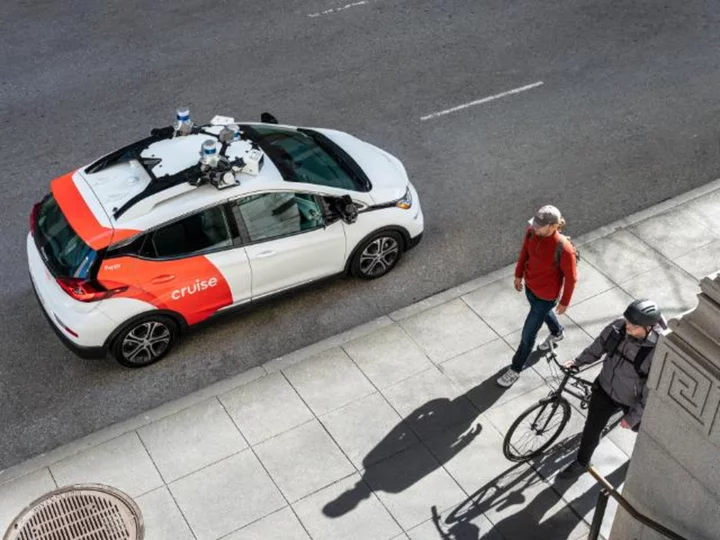
Regulators give green light to driverless taxis in San Francisco
California regulators gave approval Thursday to two rival robotaxi companies, Cruise and Waymo, to operate their driverless cars 24/7 across all of San Francisco and charge passengers for their services.
2023-08-11 18:54
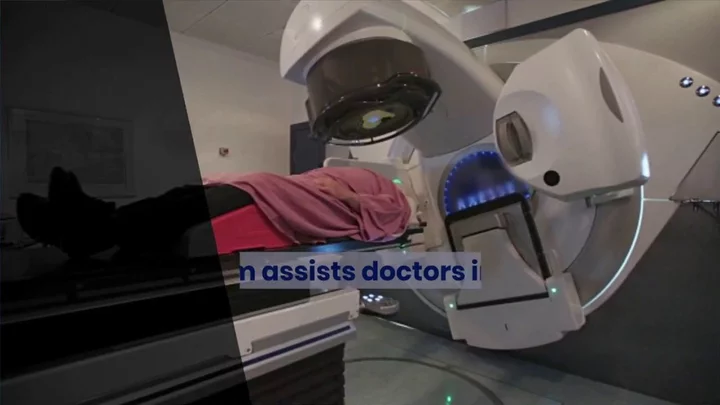
AI could soon be used to treat cancer in the NHS
Artificial intelligence could soon be used to perform radiotherapy to treat certain cancers for the first time. Draft guidance from the National Institute for Health and Care Excellence (Nice) has given approval to nine AI technologies for performing external beam radiotherapy in lung, prostate and colorectal cancers, which could save radiographers hundreds of thousands of hours and help relieve pressure on radiotherapy departments. Currently therapeutic radiographers outline healthy organs on digital images of a CT or MRI scan by hand so that the radiotherapy does not damage healthy cells by minimising the dose to normal tissue. Nice found that using AI to create the contours could free up between three and 80 minutes of radiographers’ time for each treatment plan, and that AI-generated contours were of a similar quality to manually drawn ones. Nice said that the contours would still be reviewed by a trained healthcare professional. It comes after a study found AI was safe to use in breast cancer screenings with evidence growing that it can be more effective in detecting cancers. Sign up to our free Indy100 weekly newsletter Meanwhile, Nice said it was also examining the evidence for using AI in stroke and chest scans. Dr Sarah Byron, the programme director for health technologies at Nice, said using AI could help reduce waiting lists. She added: “NHS colleagues working on the frontline in radiotherapy departments are under severe pressure with thousands of people waiting for scans. “The role imaging plays in radiotherapy treatment planning is quite pivotal, so recommending the use of AI technologies to help support treatment planning alongside clinical oversight by a trained healthcare professional could save both time and money. “We will continue to focus on what matters most and the recommendations made by our independent committee can help to bring waiting lists down for those needing radiotherapy treatment.” The health secretary, Steve Barclay, welcomed the announcement. He said: “It’s hugely encouraging to see the first positive recommendation for AI technologies from a Nice committee, as I’ve been clear the NHS must embrace innovation to keep fit for the future. “These tools have the potential to improve efficiency and save clinicians thousands of hours of time that can be spent on patient care. Smart use of tech is a key part of our NHS long-term workforce plan, and we’re establishing an expert group to work through what skills and training NHS staff may need to make best use of AI.” Charlotte Beardmore, the executive director of professional policy at the Society of Radiographers, welcomed the draft guidance but said it was not a replacement for staff and caution was needed. “It is critical there is evidence to underpin the safe application of AI in this clinical setting,” she said. Using AI would still require input by a therapeutic radiographer or another member of the oncology multi-professional team, she added. “Investment in the growth of the radiography workforce remains critical.” Science is pretty amazing. Have your say in our news democracy. Click the upvote icon at the top of the page to help raise this article through the indy100 rankings.
2023-08-11 18:21
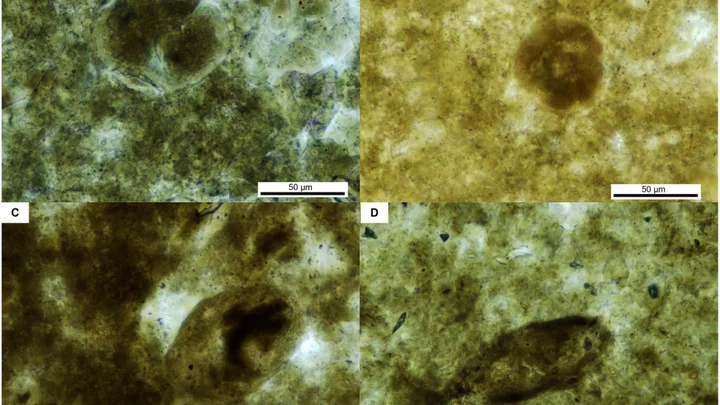
Scientists are cutting open parasitic eggs from 200 million years ago
A 200 million-year-old parasite has been discovered in fossilised poo, in the latest not-at-all-scary instance of scientists unearthing a species which blighted the Earth in ancient times. Researchers found that the earliest predators on the planet were infested with roundworm, also known as nematodes, among multiple other parasites. The fossilised poo, which is known to palaeontologists as coprolite, is thought to belong to a type of semi-aquatic phytosaur, which was a crocodile-like predator. Sign up to our free Indy100 weekly newsletter It comes weeks after another team revived a prehistoric worm – the catchily named Panagrolaimus kolymaensis – which was found dormant in the Siberian permafrost in a state of “cryptobiosis”. The latest study saw researchers from Mahasarakham University, Thailand, analyse a three-inch-long portion of ancient poo and discover five types of parasitic remnants. The group sliced open the parasitic egg fossils with a diamond saw using a “standard thin section method,” their report said. The ultra-thin slices allowed the palaeontologists to look at cross-sections of the ancient infectious microbes under a microscope. One was identified as a nematode worm egg, while the others are thought to be either more eggs, protozoan cysts or spores from moss and ferns. While modern parasites are often an important part of ecosystems, it is usually more difficult to work out what their ancient equivalents did, because there are so few examples in the fossil record. The creatures often inhabited the soft tissues of their hosts, but are rarely preserved as fossils, making the latest discovery all-the-more significant. This fossilised late Triassic-era coprolite (the poo), was shielded from the elements in the Huai Hin Lat geological formation in Thailand, which is over 200 million years old. It was found by local villagers, according to the study's lead author, paleontologist Thanit Nonsrirach. “The peculiar appearance of these findings intrigued the villagers, who considered them potentially auspicious and capable of bestowing good luck if repurposed as talismans,” Nonsrirach told news outlet Inverse. “In 2010, our team received word of this discovery and embarked on a field expedition, guiding the villagers to the actual fossil site.” The discovery is the first record of parasites in a terrestrial vertebrate host from the late Triassic period in Asia, and provides a rare look at the life of an ancient creature that was infected by multiple species. This discovery also adds to the few known examples of nematode eggs preserved within the coprolites of Mesozoic animals. “Parasites of several species, including Ascaridida (roundworm) eggs were found in a coprolite, probably produced by a crocodile-like reptile and possibly a phytosaur,” said Nonsrirach, who works at Mahasarakham University's Palaeontological Research and Education Center. “This is therefore the first discovery of Ascaridida eggs and evidence of multi-infection in a host assignable to the Crurotarsi from the Late Triassic of Asia. “Coprolite is a significant palaeontological treasure trove, containing several undiscovered fossils and expanding our understanding of ancient ecosystems and food chains. “These findings are therefore a significant contribution to scientific understanding of the distribution and ecology of parasites of the distant past.” Have your say in our news democracy. Click the upvote icon at the top of the page to help raise this article through the indy100 rankings.
2023-08-11 18:21

Warning over ‘dangerous’ carbon monoxide alarms for sale on eBay and Amazon
“Dangerous” carbon monoxide alarms are being sold on eBay, Amazon, AliExpress and Wish, Which? has warned. The consumer champion said the government was failing to take the urgent action needed to hold the marketplaces to account after tests of alarms bought on the sites found they failed to alert households to the presence of the lethal odourless gas. The group is calling for online marketplaces to have more legal responsibility for preventing unsafe products on their platforms. In total, across the five faulty alarms, Which? found 46 listings on AliExpress, 42 on eBay, 41 on Wish and 20 on Amazon. One of the unsafe models was first flagged to eBay by Which? seven years ago but this year’s tests found the model still cannot be relied on to sound when needed. It failed to respond to carbon monoxide 10 times out of 28 CO detection tests and it was far too quiet when it did sound. The same dangerous alarm was listed on AliExpress, Amazon, and Wish. A total, 149 listings for unsafe CO alarms were identified by Which? across the four online marketplaces and have since been removed. EBay is the only online marketplace that discloses sales figures which showed that at least 1,311 of the alarms identified by Which? found had been purchased. The models, all unbranded and made in China, featured prominently on the online marketplaces when listings were filtered by cheapest first, in some cases being sold for as little as £5. Another unbranded CO and smoke alarm, which failed to trigger 22 times when CO was in the air, was listed by 22 eBay sellers, with 718 sales recorded, and by two sellers on AliExpress. A separate unbranded alarm, which failed to sound in 15 carbon monoxide detection tests, was available for sale from six sellers on Amazon and eBay. Last week, the government provided an update on its long-delayed product safety review but it failed to provide reassurances of a crackdown on marketplaces any time soon. The review was launched in March 2021 but Which? said it has still not resulted in any real action to tackle the problem, which could be delayed until after the next general election. Avril Samuel, whose daughter Katie died of CO poisoning at her home, raised concerns about unsafe carbon monoxide alarms being sold online. “A carbon monoxide alarm forms the second line of defence against carbon monoxide poisoning - the first being that all carbon-burning appliances should be regularly maintained and serviced by a registered engineer,” she said. “If the alarm is not to standard, that defence is negated and could have fatal results.” Figures indicate that carbon monoxide poisoning has caused more than 200 accidental deaths in England and Wales in the past decade. Sue Davies, head of consumer protection policy at Which?, said: “This is the latest in a long line of examples of unsafe products being readily available on online marketplaces, with far too little action taken by the platforms to prevent them being allowed for sale. “The government cannot delay any longer. It must move at pace to establish new regulations that put consumer safety first and enable tough enforcement action against online marketplaces that break the rules.” Read More Bode Miller says his toddler son Asher was hospitalised for carbon monoxide poisoning 3 US Marines died of carbon monoxide poisoning in a car. Vehicle experts explain how that can happen ULEZ: What is it and why was it created? ‘Demon’ particle inside superconductor may help demystify ‘holy grail’ of physics Astronomer uncovers ‘direct evidence’ of gravity breaking down in the universe Slack announces its biggest ever update
2023-08-11 18:21

Energy Department announces largest-ever investment in 'carbon removal'
The Department of Energy announced Friday it is awarding up to $1.2 billion to two projects that promise to remove carbon dioxide from the air in what officials said was the largest investment in “engineered carbon removal” in history
2023-08-11 17:16
You Might Like...

Radiant Security Announces Revolutionary AI-Powered SOC Co-Pilot

Amazon experiments with using AI to sum up product reviews

OpenAI Backs Idea of Requiring Licenses for Advanced AI Systems
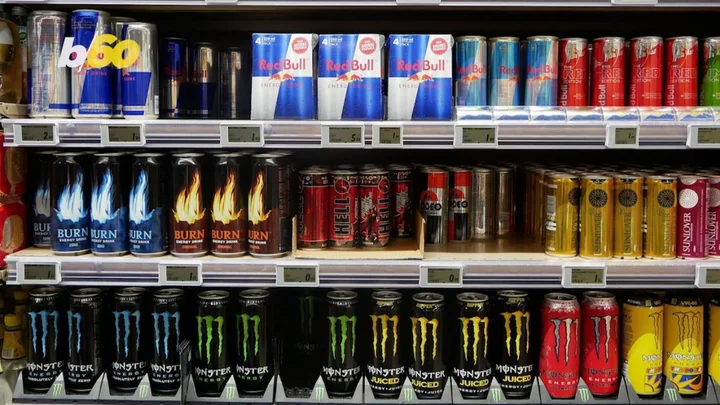
Here's why energy drinks could be the secret to a longer life

Meta criticized for making reproductive health an R-rated issue

Nintendo Download: Beyond Your Wildest Dreams
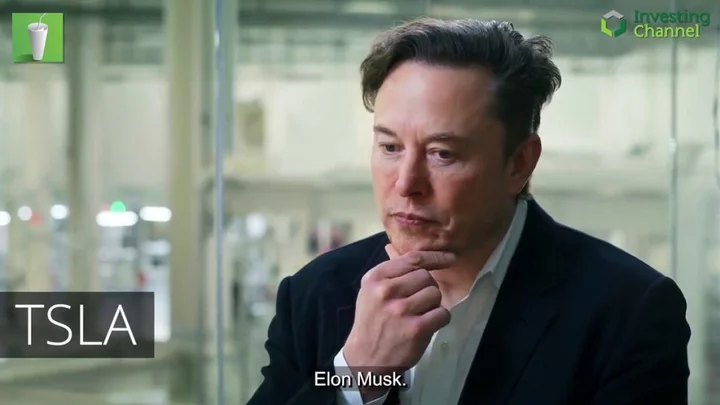
Elon Musk's 'purge' announcement sparks backlash from bereaved families including Andrew Tate
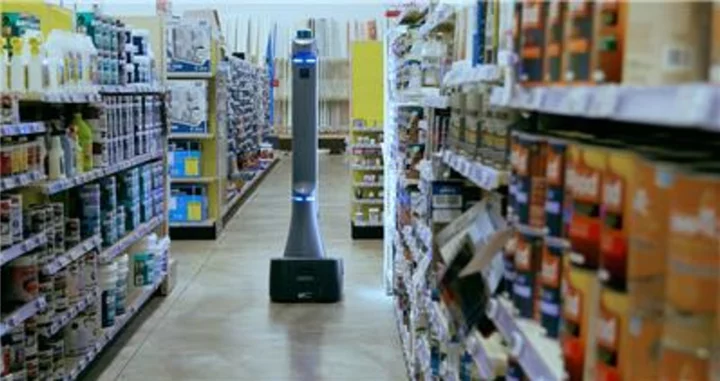
McCoy’s Building Supply Deploys Badger Technologies Autonomous Robots to Improve On-Shelf Availability and Price Integrity of Retail Hardware Products
